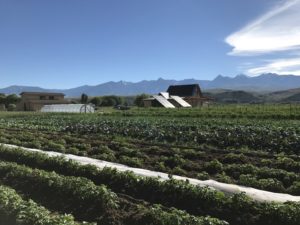
Seeds are self-propagating solutions to climate change if we steward them in a way that supports diversity, adaptability, and shared benefit. When growers plant their seed each spring, they rely on the genetics contained within each seed to survive pests and diseases, and to withstand variable weather.
From surviving high temperatures to the flavor and yield of the harvest, seed impacts the quality and security of our food supply, and has an enormous impact on how we farm and what we eat.
Thankfully members of Congress are taking notice.
Congresswoman Pingree (D-ME) and Senator Heinrich (D-NM) have reintroduced the Agriculture Resilience Act, which sets the goal of achieving zero-net greenhouse gas emissions in U.S. agriculture by 2040. The bill aims to increase research, improve soil health, protect existing farmland and support farm viability, support pasture-based livestock systems, boost investments in on-farm energy initiatives, and reduce food waste.
Sec. 205 of the bill focuses on public cultivar and animal breed research by creating the position of public breed and cultivar research coordinator within USDA and investing in the development of public seeds and breeds. For USDA’s National Institute of Food and Agriculture (NIFA), the bill requires $75 million from existing grant programs be spent on competitive grants that deliver new regionally adapted seeds and breeds. For USDA’s Agricultural Research Service (ARS), the bill requires at least $50 million be spent annually on ARS’ intramural research.
Learn more about this critical bill that we hope to see included in the 2023 Farm Bill.
Ask your members of Congress to co-sponsor the Agriculture Resilience Act today!
